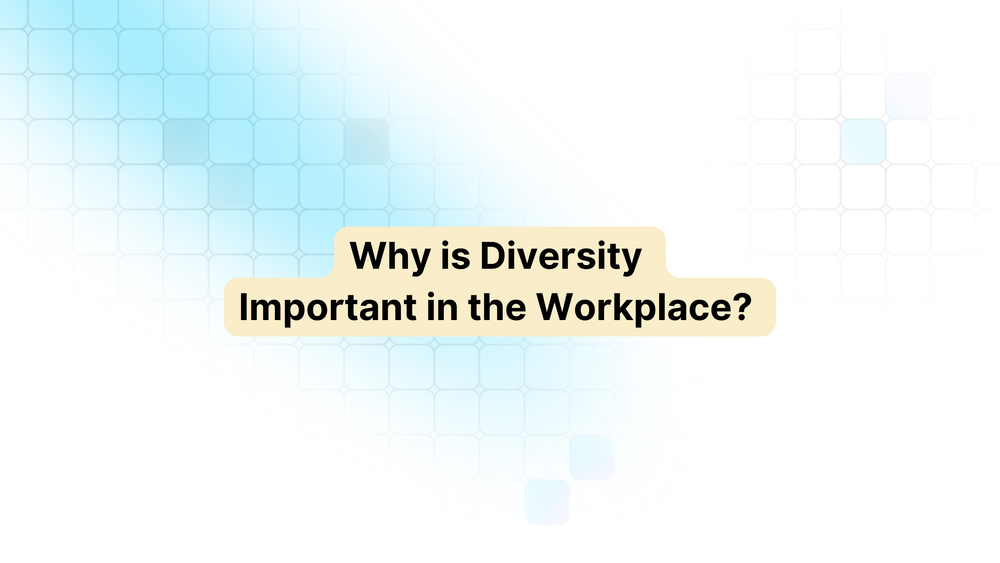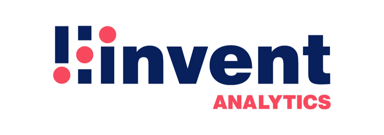
10 Advantages of Diversity in the Workplace
Workplace diversity is more than just a catchphrase, it's a critical factor for organizational success.
As HR professionals, understanding diversity can significantly impact your company's culture, performance, and bottom line. 🚀
What is Workplace Diversity?
Workplace diversity does not just mean race or ethnicity. It also includes factors like age, gender, sexual orientation, disability, education, cultural background, and different ways of thinking. A diverse workplace is one where differences are celebrated and used to help everyone grow.
This approach allows organizations to benefit from a big range of perspectives, experiences, and skills. For example, having people from different generations means you can get both the tech expertise of younger employees and the experience of older ones. Also, cultural diversity brings new problem-solving ways and communication styles that can make teams stronger. 🤝
Why is Diversity Important in the Workplace?
Diversity isn't just about meeting quotas or compliance requirements. It's about creating an inclusive environment where different ideas meet to reach innovation and success.
Organizations that embrace diversity gain a competitive advantage by better reflecting and understanding their diverse customer base.
Consider these compelling statistics 👇:
- Companies with above-average diversity produce a greater proportion of revenue from innovation
- Diverse management teams lead to higher revenue due to innovation
- Most job seekers think that workplace diversity is very important when considering employment
Advantages of Diversity in the Workplace

1. Increased Creativity and Innovation
When people from different walks of life join powers, sparks fly! Diverse teams create a unique blend of perspectives, ideas, and problem-solving techniques. This mix can help businesses get into new markets and come up with modern solutions.
For instance, a team with members from different cultures might approach a marketing campaign with fresh ideas that connect with a wider audience.
Consider these real-world applications:
- Cross-cultural teams developing products with global appeal
- Multigenerational groups combining traditional wisdom with fresh perspectives
- Neurodivergent employees offering unique problem-solving approaches
Companies like Apple and Google credit their long term success in innovation to having diverse teams.
2. Broader Range of Skills and Experiences
Diversity naturally brings a wider array of skills and experiences to your organization. Each employee brings their unique expertise, influenced by their background and journey.
This diversity of skills extends beyond technical abilities to include soft skills like:
- Language proficiency for international communication
- Cultural competence in navigating global markets
- Adaptability learned through varied life experiences
- Unique problem-solving approaches shaped by different educational systems
Real-world example: A tech company might benefit from employees who understand different cultural nuances when designing user interfaces, making their products more accessible and appealing to a global audience.
Skills diversity also includes:
- Different educational backgrounds
- Varied industry experiences
- Unique cultural insights
- Diverse communication styles
3. Better Decision-Making
Diverse teams make better decisions compared to individual decision-making. When different perspectives are considered, decisions are more thoroughly checked and potential blind spots are easier to see. 👌
Cognitive diversity helps avoid groupthink and encourages:
- More rigorous critical analysis
- Consideration of multiple alternatives
- Better risk assessment
- Enhanced problem-solving capabilities
Example scenario: A diverse product development team might identify potential issues or opportunities that a homogeneous team would overlook, leading to more successful product launches.
Key decision-making improvements include:
- Reduced confirmation bias
- Increased innovation in problem-solving
- More comprehensive risk analysis
- Better prediction of market trends
4. Improved Employee Performance and Engagement
In diverse workplaces, employees feel more comfortable being themselves, leading to:
- Higher job satisfaction and reduced stress levels
- Increased motivation and productivity
- Greater workplace happiness and team cohesion
- Enhanced creativity and willingness to share ideas
When employees feel valued for their unique contributions, they're more likely to go beyond in their roles. Inclusive teams usually outperform their peers in team-based assessments.
Engagement strategies in diverse workplaces:
- Regular feedback sessions that value different perspectives
- Inclusive team-building activities
- Recognition programs that celebrate diverse achievements
- Mentorship opportunities across different employee groups
5. Access to a Wider Talent Pool
Organizations open themselves to a broader talent pool by embracing diversity. This is very important as skills gaps are a major concern now in today's job market.
Benefits of a diverse talent pool are 👇:
- Access to unique skill sets and perspectives
- Different educational backgrounds bringing varied approaches
- Varied professional experiences enhancing team capabilities
- Multilingual capabilities for global market expansion
Recruitment strategies for diversity:
- Partnerships with diverse professional organizations
- Inclusive job descriptions and application processes
- Diverse interview panels
- Blind resume screening to reduce unconscious bias
6. Enhanced Company Reputation and Employer Brand
Companies known for their diverse and inclusive workplaces often enjoy:
- Stronger employer branding attracting top talent
- Better recruitment outcomes and reduced hiring costs
- Positive public perception leading to improved customer relations
- Increased customer loyalty from diverse customer bases
Now, job seekers, especially Gen Z, are all about finding companies that actually value diversity. In fact, most people looking for work consider workplace diversity a major factor when deciding on a job offer.
Brand building through diversity:
- Authentic representation in marketing materials
- Transparent reporting on diversity metrics
- Employee testimonials showcasing inclusive culture
- Community engagement supporting diverse causes
7. Higher Employee Retention Rates
Diverse workplaces usually see higher employee retention rates. Employees are more likely to stay with the organization long-term when they feel included and valued. 📈
Factors contributing to better retention in diverse workplaces:
- Inclusive culture where all employees feel they belong
- Growth opportunities for all, regardless of background
- Sense of belonging and community
- Fair advancement practices and transparent promotion criteria
Retention strategies:
- Regular inclusion surveys and feedback sessions
- Career development programs for diverse employees
- Employee resource groups and support networks
- Inclusive benefits packages that cater to diverse needs
8. Better Understanding of Customers
A diverse workforce better reflects your customer base, leading to:
- Improved customer service through cultural competence
- More effective marketing strategies that resonate with different demographics
- Better product development informed by diverse perspectives
- Enhanced customer relationships and loyalty
When your team mirrors your customer demographic, you need to be equipped to understand and serve their needs. This can lead to:
- Increased market share in diverse communities
- More effective communication with different customer segments
- Improved product adaptation for different markets
- Enhanced customer satisfaction and loyalty
9. Increased Profitability
Companies with more gender diversity tend to see better financial results and usually outperform the industry average. 💸
Diversity impacts profitability through:
- Innovation leading to new revenue streams and market opportunities
- Improved decision-making reducing costly mistakes
- Enhanced customer satisfaction driving sales and loyalty
- Reduced turnover costs thanks to better retention
Financial benefits:
- Access to new markets and customer segments
- Improved risk management
- Enhanced reputation leading to better business opportunities
- Increased innovation driving competitive advantage
10. Enhanced Adaptability and Flexibility
Diverse organizations are typically more adaptable to change. With a wide range of perspectives and experiences, these companies are better equipped to:
- Navigate market changes and economic fluctuations
- Adapt to new technologies and industry trends
- Respond to global challenges with innovative solutions
- Pivot strategies when needed
Adaptability advantages:
- Faster problem-solving in crisis situations
- More creative approaches to change management
- Better resilience during market disruptions
- Improved ability to serve evolving customer needs

Implementation Strategies for HR Professionals
To successfully implement diversity initiatives 📌:
- Start with leadership buy-in and commitment
- Develop comprehensive diversity and inclusion policies
- Implement bias-free recruitment practices
- Provide ongoing diversity and inclusion training
- Create mentorship programs for underrepresented groups
- Establish employee resource groups and support networks
- Regular review and update of HR practices
Best practices for implementation:
- Set clear, measurable diversity goals
- Create accountability at all levels
- Develop inclusive communication guidelines
- Establish diversity champions across departments
How to Track and Evaluate Diversity Success
Measuring the impact of diversity initiatives is very important. 📊
Key metrics to track include:
- Demographic data across different organizational levels
- Employee satisfaction and engagement scores
- Retention rates across different groups
- Promotion rates and pay equity analysis
- Recruitment diversity metrics and pipeline data
Best Practices for Measurement:
- Set clear, measurable goals aligned with business objectives
- Use anonymous surveys for honest feedback
- Regularly review and adjust strategies based on data
- Celebrate successes and learn from challenges
- Implement continuous improvement processes
HR professionals play a crucial role in shaping organizational culture. They create more inclusive environments and also drive business success by embracing and promoting workplace diversity. The advantages of diversity are clear and many: from boosting innovation to improving the bottom line.
Creating a truly diverse workplace takes time, commitment, and continuous effort. But the rewards make it more than worth the investment.
As we move forward in an increasingly interconnected world, organizations that successfully embrace diversity will be the ones that succeed and lead in their industries. 🎉
Start Hiring With Our Free ATS!
-
Contents
Get a demo
- Quickly find top candidates with smart application management
- Improve team collaboration using built-in communication and workflows
- Offer a smooth candidate experience to strengthen your employer brand
- Count on 24/7 support for a hassle-free hiring process
- Quickly find top candidates with smart application management
- Improve team collaboration using built-in communication and workflows
- Offer a smooth candidate experience to strengthen your employer brand
- Count on 24/7 support for a hassle-free hiring process
"We truly felt the speed difference. Everything was smoother, and candidate feedback was much more positive. It made our jobs easier."

Trusted by 100+ teams
Get Informed,F.A.Q.
Revolutionize your hiring process with our transformative Applicant Tracking System (ATS.)
Suggested Blog Posts

5+ Recruitment Statistics You Need to Know in 2026

30+ Statistics Highlighting the Importance of Workplace Diversity and Inclusion
















